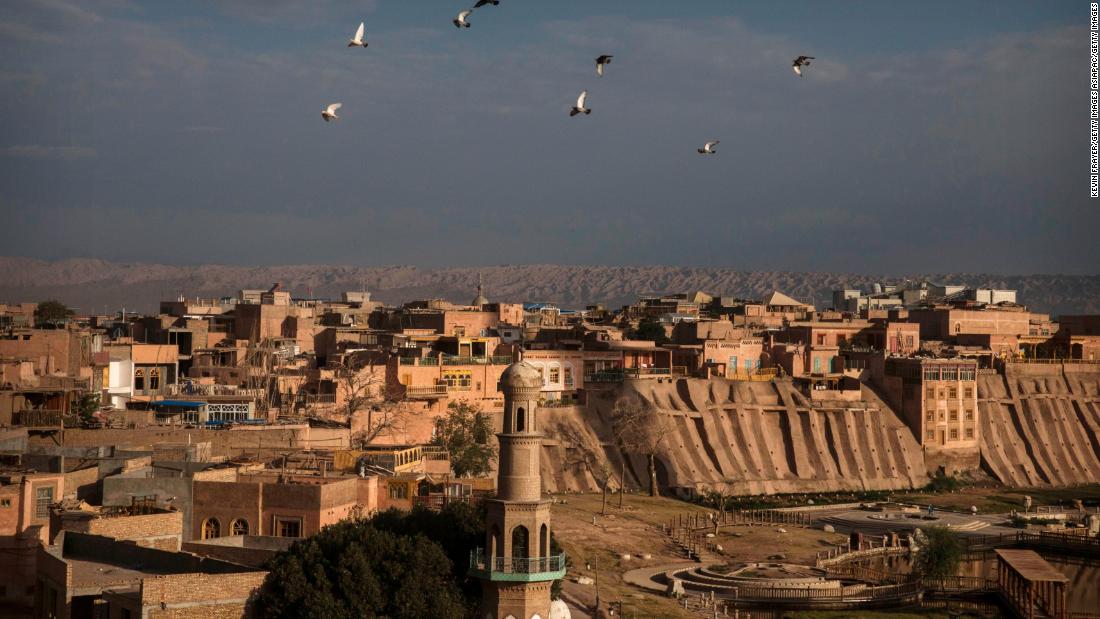“This genocide is ongoing and … we are witnessing the systematic attempt to destroy the Uighurs by the Chinese party-state,” United States Secretary of State Mike Pompeo said in a statement on Tuesday on the last full day Trump administration.
“Since at least March 2017, local authorities have dramatically stepped up their decades-long crackdown on Uighur Muslims and members of other ethnic and religious minority groups, including ethnic and Kyrgyz Kazakhs,” said Pompeo.
The US State Department previously estimated that up to two million Uighurs, as well as members of other Muslim minority groups, were detained in a wide network of internment camps in the region.
Former detainees in reeducation camps told CNN that they suffered political indoctrination and abuse within the camps, such as food and sleep deprivation and forced injections. CNN reports also found that some Uighur women were forced to use contraception and undergo sterilization as part of a deliberate attempt to reduce birth rates among minorities in Xinjiang.
China denies allegations of such human rights abuses in Xinjiang. He insisted that his re-education camps are necessary to prevent religious extremism and terrorism in the area, which is home to some 11 million Uighurs, a predominantly Muslim ethnic minority who speak a language closely related to Turkish and have their own distinct culture.
Opinion articles and reports in the Chinese state media also specifically argued against applying the term “genocide” to the situation.
The Washington-based advocacy group, Campaign for Uyghurs, hailed the designation as a step towards justice.
“This statement does not change anything immediately, but as any victim will tell you, having the eyes of the world community seeing us and recognizing that our horror is real, means everything,” CFU Director Rushan Abbas said in a statement on Tuesday .
“My own sister’s 20-year sentence in prison on false charges is clearly linked to this genocidal intention of the Chinese regime. She, and all Uighurs, deserve justice,” he added.
Concern about human rights issues in Xinjiang is a bipartisan issue in the United States. However, the announcement in the final hours of the Trump administration could further complicate the new Biden government’s approach and negotiations with Beijing.
The president-elect spoke about human rights violations in China and, in November 2019, rated the mass internment of Uighur Muslims “among the worst human rights abuses in the world today”.
“The United States cannot be silent – we must speak out against this oppression and relentlessly defend human rights around the world,” tweeted Biden. In a statement to Politico in August, Biden’s campaign spokesman Andrew Bates called the crimes genocide.
“If the Trump administration really decides to call it what it is, as Joe Biden has done, the urgent question is what Donald Trump will do to act. He must also apologize for tolerating this horrible treatment of Uighurs,” said Bates. he said – apparently referring to a complaint by former national security adviser John Bolton that Trump had previously encouraged Chinese President Xi Jinping to continue to build detention camps in Xinjiang.
In his statement on Tuesday, Pompeo said that he “instructed the US State Department to continue to investigate and collect relevant information about the ongoing atrocities in Xinjiang and to make that evidence available to competent authorities and the international community to the extent permitted. by law. “
The treatment of Uighurs and other minorities in Xinjiang has been widely condemned by the international community. In July 2019, twenty-two countries, including Japan and the United Kingdom, signed a letter urging China to end its “arbitrary mass arrests and related violations” and urged Beijing to allow UN experts to access the region.
In December, the European Parliament adopted a resolution condemning China on charges of forced labor. The British government also criticized Beijing and said earlier this month that it would fine companies that concealed connections with Xinjiang.
The new measures were designed to ensure that all British organizations “are not complicit in or profit from human rights violations in Xinjiang,” according to the United Kingdom’s Foreign Ministry.
Earlier this month, the US also banned imports of cotton products and tomatoes produced in Xinjiang due to forced labor issues.
